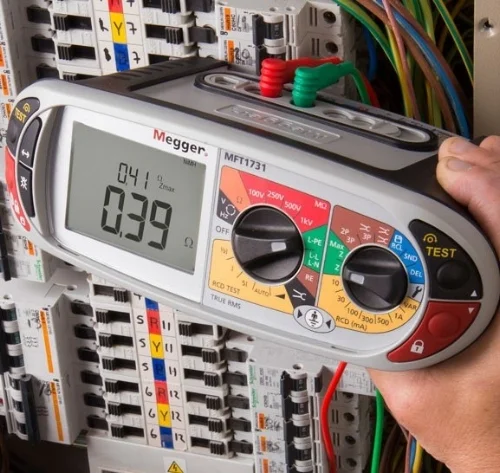With the downturn in the property market, the private rental market is booming, especially in London. Many those who cannot sell their houses are forced to let them out instead, and there is no shortage of tenants, as a result of the many who cannot obtain a mortgage. Unfortunately, these new landlords in many cases are unaware of the electrical safety requirements for rented property. If you're a new landlord, or indeed if you have been renting out property for a considerable time, it is important that you need to be aware of the legal responsibility you have for the safety of one's tenants. Although there's no specific law relating to the inspection of electrical installations, as there's for gas installations, you still have a legal duty of care. For example, underneath the Landlord and Tenant Act, plus other regulations including Electrical Equipment Regulations and Plugs and Sockets Safety Regulations, you are legally obliged to make certain electrical installations are safe. If a tenant stumbled on harm due to inadequate electrical maintenance, you could be successfully sued - and quite apart from this, you would believe it is hard to live with this awful event.

To start with, you'll need to hold out regular visual safety inspection yourself, to check on for hazards such as for instance broken switches and sockets, scorch marks on sockets because of overloading, and damaged or trailing cables. As well as being done at regular intervals, this will be achieved at every changeover, before the new tenant arrives. In addition, you have to have regular EICRs Electrical Installation Condition Reports provided by way of a qualified electrician. They're recommended for a private dwelling every ten years, but for rented property they should be carried out at the least every five years, or maybe more often if you can find changes of tenancy. It is specially important to ensure that the wiring is compliant with the latest regulations, and that the power circuits are fitted with a residual current device or circuit breaker. To make certain tenant safety, in addition you need to have a fire alarm system and emergency escape lighting installed.
For the electrical installations, and for the regular inspections, it is important that you utilize an electrician who is registered with a government-approved body. What this means is the electrician is going to be qualified to offer a safety certificate confirming your installations. In this manner, should there be described as a serious accident, you'll at least manage to show that you've carried out due diligence in respect of electrical safety at your property.Building use, numbers of people permanently occupying the building, the quantity and frequency of visitors. The demographic of anyone utilizing the building all must certanly be considered when testing frequency is set. As a very rough principle education establishments require probably the most frequent testing every four months.

No comments:
Post a Comment